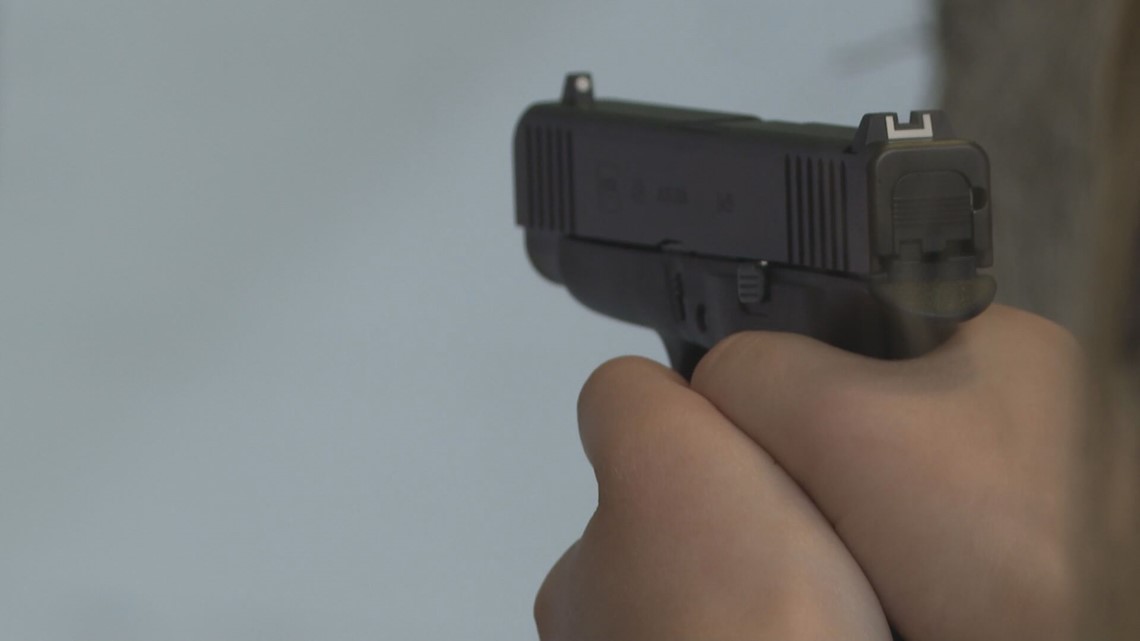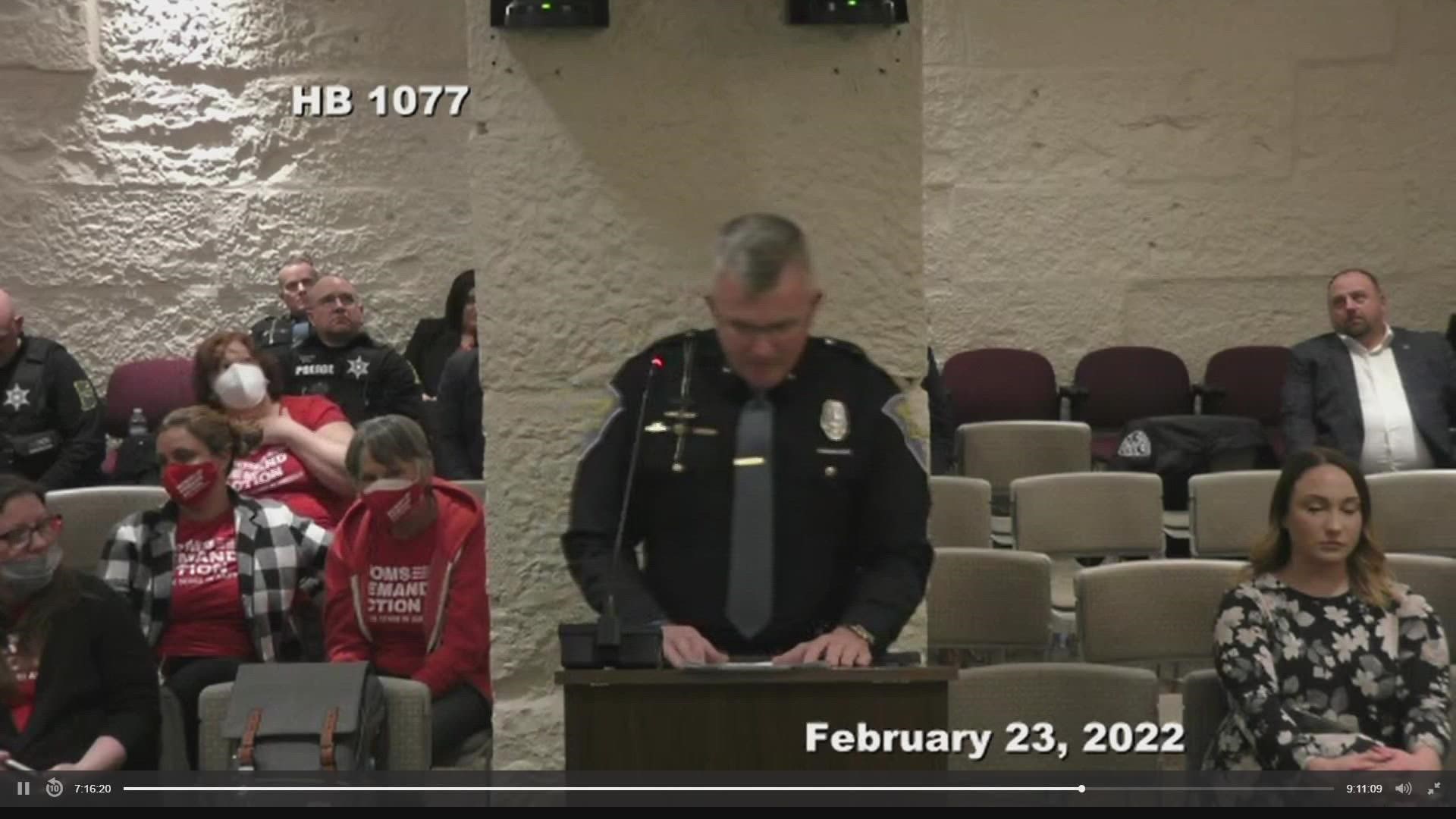INDIANAPOLIS — Indiana State Police reports it's currently providing legal updates to make sure troopers know what to expect when the new "Constitutional Carry" law goes into effect. Permitless carry will allow Hoosiers to carry a handgun without a license and limit what police officers can ask when they see a gun.
"It's very limiting. It's very limiting in what we're going to be able to do," said ISP Superintendent Doug Carter.
Carter told lawmakers he was against the law before they passed it. One of his concerns: Officers won't be able to tell a good guy with a gun from a bad guy.
"What I do have issues with is limiting our ability to determine a proper person," Carter said. "That's the biggest issue here because it worked."
Police won't be able to ask if someone has a gun license after July 1. They also won't be able to stop someone just for having a gun. However, the law will allow police to stop someone and check a criminal background history if they have probable cause a crime is happening.
ISP put together a PowerPoint explaining what officers can do on the frontlines. The legal update usually lasts a couple of hours and allows troopers to ask questions.
Police will still be able to intervene if they have probable cause a crime has occurred. They can also take a gun away in some situations.


However, it's complicated, which is why ISP is working on creating a hotline to help troopers and officers at other departments navigate the law.
Carter is concerned many people think anyone can carry come July 1. However, that's not the case. Also going into effect July 1 is a prohibited persons list.
Because the law is nuanced, ISP still encourages people to obtain a license to make sure they are allowed to carry.
"Let us do that work for you," Carter said. "It's free, then we'll send you that license and you're good to go."
State Police reviews current law, which defines a "proper person" eligible for a handgun license as someone who:
- Does not have a conviction for resisting law enforcement within five years of applying
- Does not have a conviction for a crime for which the person could have been sentenced for more than one year
- Does not have a conviction for a crime of domestic violence unless a court has restored the person's right to possess a firearm
- Is not prohibited by a court order from possessing a handgun.
- Does not have a record of being an alcohol or drug abuser as defined by state law
- Does not have documented evidence, which would give rise to a reasonable belief that the person has a propensity for violent or emotionally unstable conduct
- Does not make a false statement of material fact on the person's application
- Does not have a conviction for any crime involving an inability to safely handle a handgun
- Does not have a conviction for violation of the provisions of this article within five years of the person's application
- Does not have an adjudication as a delinquent child for an act that would be a felony if committed by an adult, if the person applying for a license or permit under this chapter is younger than 23 years of age
- Has not been involuntarily committed, other than a temporary commitment for observation or evaluation, to a mental institution by a court, board, commission, or other lawful authority
- Has not been the subject of a 90 day commitment as a result of proceeding under IC 12-26-6 or regular commitment under IC 12-26-7
- Has not been found by a court to be mentally incompetent, not guilty by reason of insanity, guilty but mentally ill or incompetent to stand trial.
- Is not currently designated as dangerous by a court.
As of July 1, someone is considered a "prohibited person" if they are:
- A person who has been convicted of a state or federal offense punishable a year or more in prison
- A person who has been convicted of domestic violence, domestic battery or criminal stalking and firearms rights have not been restored
- A person under an order of protection
- A fugitive from justice
- A person under felony Indictment
- A person who has been adjudicated dangerous
- A person who has been adjudicated a mental defective
- A person who has been committed to a mental institution
- A person dishonorably discharged from military service or the National Guard
- A person who renounces the person's United States citizenship in the manner described in 8 U.S.C. 1481
- A person who is younger than 18, unless authorized under IC 35-47-10
- A person who is younger than 23 and has an adjudication as a delinquent child for an act described by IC 35-47-4-5, unless authorized under IC 35-47-10
- An Alien
If a "prohibited person" is caught carrying a gun once this law passes, they could face misdemeanor or felony charges.

